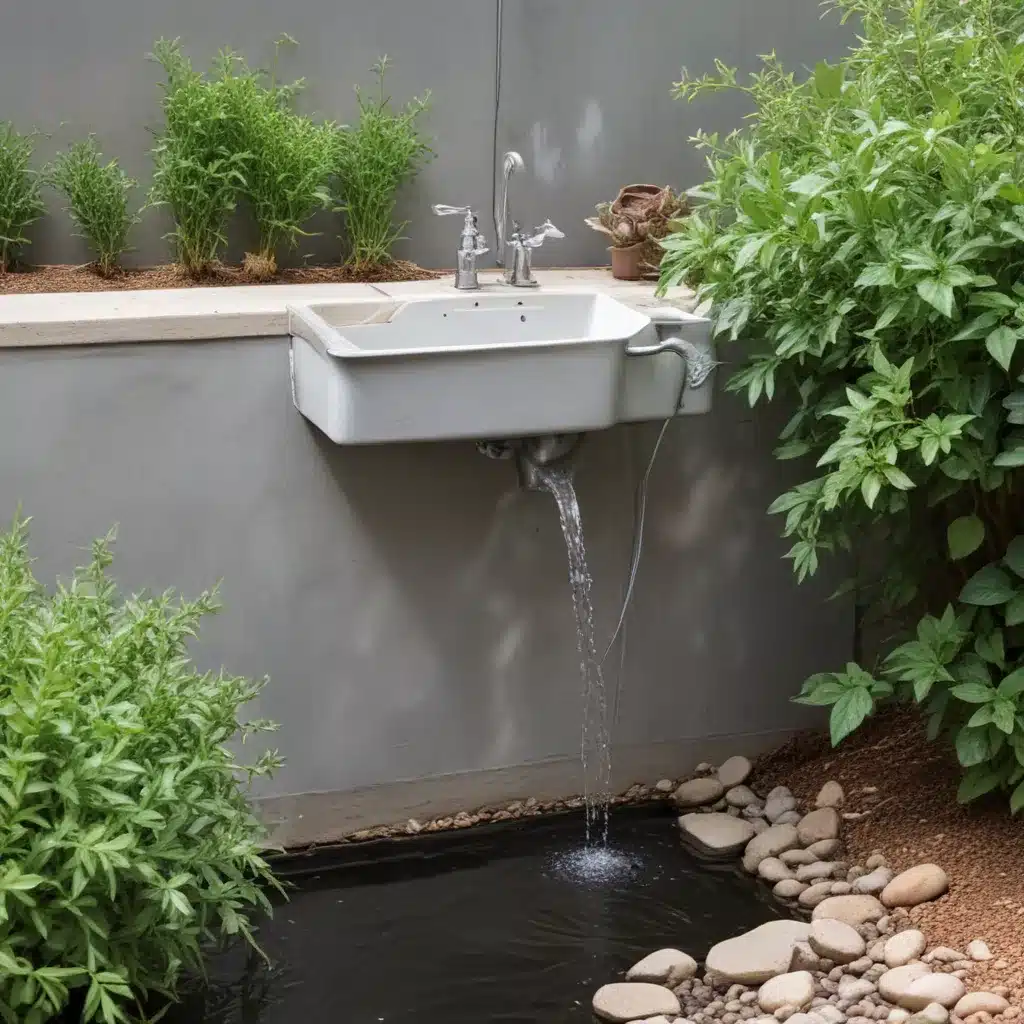
Conserving Water, Nourishing Nature
Water, the essential elixir of life, is a precious resource that demands our utmost respect and responsible stewardship. In an era of dwindling freshwater supplies and growing environmental concerns, it’s time to tap into the wisdom of our ancestors and reimagine water management for a sustainable future.
At Stanley Park High School, we believe in empowering our community to become water-wise champions, learning from the innovative water conservation practices of the past and applying them to modern-day solutions. Join us as we explore the world of greywater recycling, efficient irrigation systems, and other water-saving techniques that can transform your home and garden into a thriving, eco-friendly oasis.
Greywater Recycling: From Waste to Resource
One of the most impactful ways to reduce your water footprint is by implementing a greywater recycling system. Greywater, the relatively clean wastewater from sinks, showers, and washing machines, can be captured, treated, and reused for non-potable purposes, such as irrigating your lawn and garden.
Learn more about greywater systems and their benefits on our website.
Greywater 101: Understanding the Basics
Greywater is distinct from “blackwater,” which refers to wastewater from toilets, kitchen sinks, and dishwashers that may contain contaminants and should be directed to the sewer or septic system. By diverting greywater, you can significantly reduce the strain on municipal water treatment facilities and conserve precious freshwater resources.
Greywater recycling systems come in various forms, from simple diversion systems to more sophisticated treatment and distribution setups. These systems filter out debris, oils, and other contaminants, ensuring the water is safe for use on your landscape.
The Benefits of Greywater Recycling
Implementing a greywater recycling system in your home or school can provide a multitude of benefits:
- Water Conservation: By reusing greywater for irrigation, you can reduce your overall water consumption and lower your utility bills.
- Reduced Wastewater: Diverting greywater from entering the sewer or septic system helps alleviate the burden on wastewater treatment facilities.
- Healthier Soil and Plants: Greywater contains nutrients that can nourish your garden, promoting lush, vibrant growth.
- Environmental Impact: Greywater recycling reduces the demand for freshwater, contributing to the sustainable management of this vital resource.
Getting Started with Greywater Recycling
Interested in setting up a greywater system in your home or school? The first step is to research your local regulations and requirements, as some areas have specific guidelines for greywater usage. Once you understand the guidelines, you can explore the various greywater system options and choose the one that best fits your needs and budget.
Check out our recommended greywater system providers and resources to get started.
Efficient Irrigation: Channeling Water Wisdom
Alongside greywater recycling, efficient irrigation systems play a crucial role in water conservation. Drawing inspiration from the ingenious water management practices of ancient civilizations, we can revolutionize the way we distribute and utilize water in our gardens and landscapes.
Aqueducts and Irrigation Systems: Lessons from the Past
Throughout history, diverse cultures have developed sophisticated water distribution networks, including aqueducts and irrigation systems, to channel water with precision and minimize waste. The ancient Romans, Persians, and Mayans, among others, harnessed the power of gravity, engineering intricate networks of canals and channels to deliver water to their communities and agricultural lands.
By studying these time-tested techniques and integrating modern technologies, we can create highly efficient irrigation systems that optimize water usage, reduce runoff, and promote healthy plant growth.
Drip Irrigation: A Water-Wise Solution
One of the most effective irrigation methods is drip irrigation, which slowly and directly delivers water to the roots of plants, minimizing evaporation and ensuring targeted distribution. Drip systems can be easily installed in both residential and commercial settings, providing a sustainable way to maintain lush, thriving landscapes.
Rain Gardens and Bioswales: Nature’s Water Filters
Embracing the concept of natural filtration, we can incorporate rain gardens and bioswales into our landscapes. These strategically placed depressions or shallow channels help to slow down and filter stormwater runoff, allowing it to percolate into the soil and replenish groundwater reserves.
Not only do these features enhance water conservation, but they also support biodiversity by providing habitats for a variety of beneficial plants and wildlife.
Harnessing the Power of Community
Water management is not just an individual responsibility; it’s a collaborative effort that requires the collective wisdom and participation of our community. By fostering a culture of water stewardship, we can empower one another to adopt sustainable practices and drive meaningful change.
Citizen Science and Community Engagement
One powerful way to engage our school community is through citizen science initiatives. By involving students, parents, and local residents in water monitoring, data collection, and conservation projects, we can cultivate a deeper understanding of our water resources and collectively develop solutions to address local challenges.
Explore our upcoming community-based water projects and find out how you can get involved.
Partnerships and Knowledge Sharing
Forging partnerships with local organizations, water authorities, and sustainability experts can provide invaluable resources and support for our water conservation efforts. By collaborating and sharing knowledge, we can access the latest research, best practices, and innovative technologies to enhance our water management strategies.
A Call to Action: Becoming Water-Wise Champions
As members of the Stanley Park High School community, we all have a role to play in securing a water-resilient future. Whether it’s implementing greywater recycling systems, optimizing irrigation practices, or participating in community-based initiatives, every action we take can make a lasting impact.
Join us in tapping into the wisdom of the past and reimagining water management for a sustainable tomorrow. Together, we can cultivate a thriving, water-wise ecosystem that nourishes our community and the environment.

